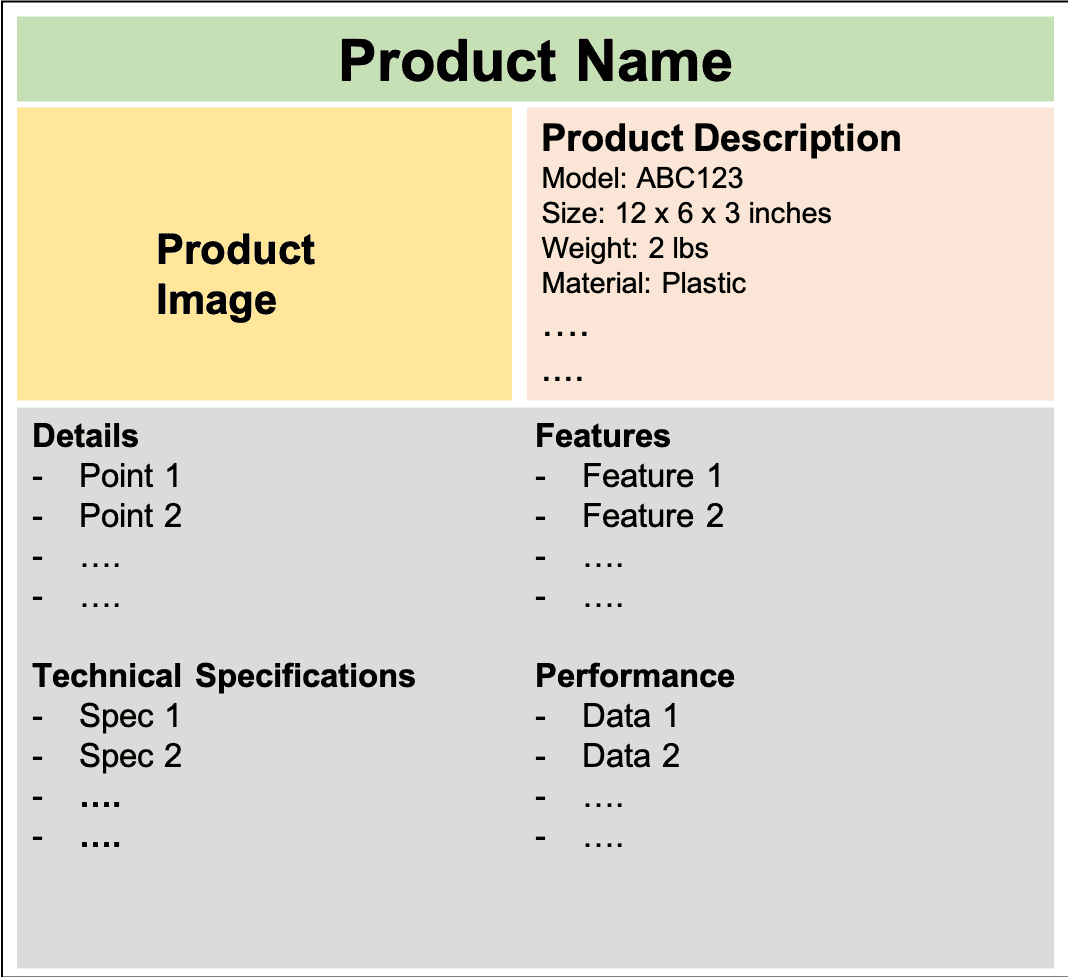A spec sheet, also known as a technical specification sheet, is an essential document that provides in-depth details about a product or service. It serves as a blueprint, outlining the capabilities, features, and technical aspects of the product, giving a comprehensive understanding of how it is intended to function or perform.
Key Contents of Spec Sheets
Spec sheets can include:
- Product name, model number, and images
- Dimensions, materials used, and weight
- Design specifications and technical capabilities
- Performance parameters like speed, output, and power requirements
- Compliance and certification information
- Operating instructions and handling guidelines
- Manufacturer contact details
The level of detail depends on the complexity of the product and the target audience. Spec sheets for consumers may be less technical than those for engineers.
Major Applications and Uses of Spec Sheets
1. Aid Product Design and Development
Engineers and product designers heavily rely on spec sheets during development. The sheets provide detailed technical data to aid design and engineering.
2. Help Consumers Make Informed Purchases
In eCommerce or shopping, spec sheets allow consumers to compare products and make informed purchase decisions based on technical capabilities.
3. Enable Bidding for Projects
Construction companies and manufacturers use spec sheets when seeking bids from contractors. The sheets provide project details for accurate cost estimates.
4. Act as a Sales and Marketing Tool
Sales teams leverage spec sheets to highlight product strengths and differentiate from competitors. Spec sheets serve as marketing collateral.
5. Facilitate Compliance and Certifications
Spec sheets contain key compliance information needed for product safety certifications and regulatory approvals.
6. Spec Sheets for Services
Spec sheets are not limited to physical products. Service providers can also create spec sheets outlining service capabilities, deliverables, timelines, and other details.
Spec Sheet Template
Here is a template for a spec sheet of a product:

Creating Effective Spec Sheets: Best Practices
1. Focus on Target Audience
Technical expertise of the audience determines how complex and detailed the spec sheet should be. Avoid highly technical jargon for consumer products.
2. Highlight Key Features and Capabilities
Focus on the most important capabilities that customers care about. Avoid listing minor technical minutiae.
3. Use Charts, Diagrams, and Visuals
Charts, schematics, and diagrams aid understanding and break up blocks of text. Photos help customers visualize products.
4. Maintain Consistent Structure
Group related specs and maintain a consistent structure across all sheets for ease of use.
5. Keep Spec Sheets Updated
Spec sheets should be living documents, updated regularly as products evolve through improvements and new versions.
Frequently Asked Questions
What is a spec sheet?
A spec sheet refers to a technical document that specifies the capabilities and functionality of a product or service, outlining the ‘specs’ or technical specifications.
What does a spec sheet contain?
Spec sheets contain technical details of a product like materials, dimensions, features, performance parameters, certifications, operating instructions, and manufacturer information, providing a comprehensive understanding of the product.
What is the purpose of a spec sheet?
The key purposes of a spec sheet include aiding product design, helping consumers make purchases, enabling bidding, serving as a sales/marketing aid, and facilitating compliance certification.
What is a design spec sheet?
A design spec sheet provides detailed specifications like materials, dimensions, and finishes needed for product design and development, serving as a blueprint for product engineers and designers.





